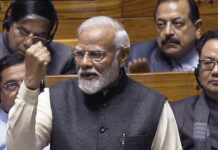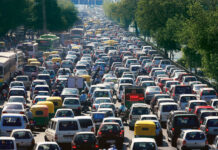According to researchers that looked at the effects of coffee vs. caffeine on coffee drinkers, if you want to feel more than simply alert but also ready to go, caffeine alone won’t cut it. You need to actually drink that cup of coffee.
The purpose of the study was to determine if the wakefulness effect was caused by caffeine or by the act of drinking coffee. The study, which was published in the journal Frontiers in Behavioural Neuroscience, was led by Nuno Sousa of the University of Minho in Portugal. “There is a common expectation that coffee increases alertness and psychomotor functioning,” he said.
“When you better comprehend the biological mechanisms underlying a phenomenon, you open pathways for exploring the variables that might modulate it and even the potential advantages of that mechanism,” said Sousa.
A minimum of one cup of coffee per day drinkers were sought out by the researchers, who also instructed participants to abstain from food and caffeine-containing beverages for at least three hours prior to the trial.
In addition to having their brains scanned using functional MRI (fMRI) twice, once before and once after ingesting caffeine or consuming a standardised cup of coffee, the subjects’ sociodemographic information was gathered through interviews.
The participants were instructed to unwind and allow their thoughts wander while being scanned.
The researchers anticipated that the brain scans would reveal enhanced integration of the executive memory-related prefrontal cortical networks as well as the default mode network, which is involved in introspective and self-reflective processes, in light of the neurochemical consequences of coffee consumption.
However, they discovered that the connectivity of the introspective network had decreased in both coffee drinkers and caffeine users, indicating that both substances made people more active and better equipped for working on tasks.
The right executive control network and the upper visual network, which are utilised for working memory, cognitive control, and goal-directed behaviour, were also found to have improved connection solely in coffee drinkers.
The fact that this didn’t occur in caffeine users indicates, according to scientists, that drinking coffee is necessary if you want to feel attentive and ready to go as well as alert.
The study’s primary author, Maria Pico-Perez of Jaume I University in Spain, put it simply: “After drinking coffee, the subjects were more alert to external stimuli and more ready for action.”
We should anticipate other caffeinated drinks to share some of the effects, said Pico-Perez, “considering that some of the effects that we found were reproduced by caffeine.”
Others, on the other hand, were unique to coffee drinking and were motivated by elements like the unique flavour and aroma of the beverage or the psychological anticipation of ingesting it, according to Pico-Perez.












